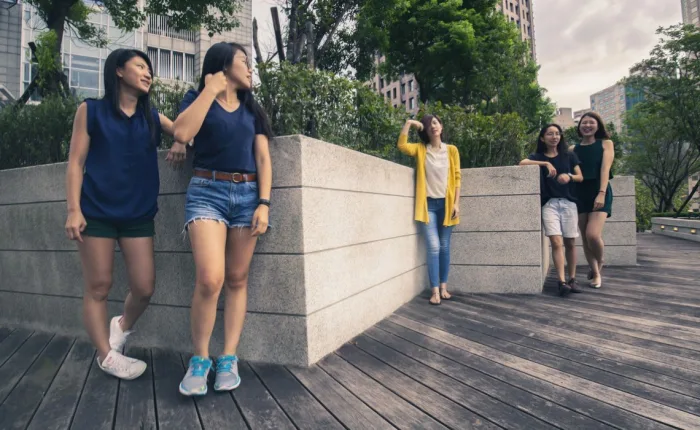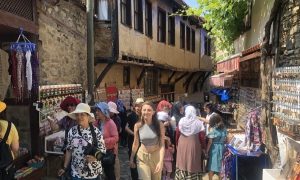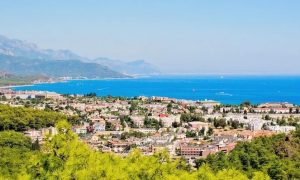In the past few years, more and more Chinese people have set their sights on Turkey, a country that straddles Europe and Asia. As a country with a rich history, diverse culture and low cost of living, Turkey has become a popular destination for many people to move to or even invest in.immigrantsof choice. But what kind of integration process do Chinese people who actually live in Turkey go through? Are employment opportunities optimistic? Are the cultural differences a problem? Today, through the personal experiences of several frontline Chinese, we will restore a real "Life as an immigrant in TurkeyThe Picture View."
I. Cultural integration: finding convergence in differences
"The most uncomfortable thing when I first came here was the food and communication." Ms. Liu from Beijing, who has been working in a Chinese-owned company in Istanbul for more than two years, shared. "Turks are warm, but there are big cultural differences, for example, they talk about impromptu communication and don't really like a planned approach, which is a test for Chinese people who are used to having everything in order."
However, cultural integration is not as difficult as it seems. Most Chinese say that Turks are also very friendly as long as they are willing to adapt and respect local customs, such as giving small gifts on holiday occasions and learning basic Turkish. In particular, major cities such as Istanbul, Ankara and Izmir are relatively more tolerant of foreigners.
II. Employment environment: opportunities and challenges
Turkey's economy has fluctuated a lot in recent years, but there are still some opportunities for Chinese people who know Chinese and English and have a professional background.
Common career paths include:
-
Representative offices of Chinese companies, manufacturing, logistics;
-
Travel and study abroad counseling;
-
Cross-border e-commerce and digital marketing positions;
-
Chinese language teachers or Chinese language guides.
However, the challenges are equally clear. The Turkish government is wary of foreign workers, with long processing times for work visas and the need to prove that "there is no local person available for the position". Therefore, having "scarce skills" is key to improving employment success.
III. Residential experience: low cost of living, suitable for long term residence
Many Chinese say that the cost of living in Turkey is very "friendly" compared to Europe and the United States.
Below is a reference of living expenses in some of the major cities:
-
rent for a room or house: A one-bedroom apartment in the center of Istanbul is about 3,000-5,000 Turkish Lira (equivalent to about $800-1,300).
-
transportation: Public transportation is extremely well-developed, with one bus card recharge for the subway, tram and ferry.

-
medical care: Public hospitals are cheaper but have to wait in line, it is recommended to purchase commercial insurance to visit private hospitals.
-
foodstuffs: Local fruits and vegetables and meat are cheaper, and imported Chinese food ingredients are increasingly available in supermarkets.

However, the Turkish currency exchange rate is volatile, making financial management and asset preservation especially important for those who rely on local income.
IV. Language barriers and community support
Although English is partially spoken in big cities, Turkish is still an unavoidable language barrier in life. Knowing a little Turkish will greatly reduce communication barriers, especially when it comes to matters such as residency, opening a bank account, or finding an apartment.
Fortunately, the Chinese community in Turkey has become increasingly active in recent years. Whether it is the WeChat community, Chinese restaurants in the cities, Chinese language schools, or Chinese business associations, there are many opportunities for therecent immigrantsor sojourners provide a lot of help.
V. Real experience: worth moving to but need to be mentally prepared
"Turkey is not perfect, but it's free." Mr. Wu, who lives in Antalya, said he has opened a small coffee shop in Turkey and has also built good relationships with local friends. "Compared with the high-pressure life in the country's big cities, it's slow-paced and sunny enough for me to live."
However, he also emphasized thatImmigration to TurkeyIt is not a haven, and you should do your homework and plan your visa path (e.g. tourist visa to residence permit, investment, employment, etc.) before you move, as well as be able to accept a certain amount of uncertainty.






